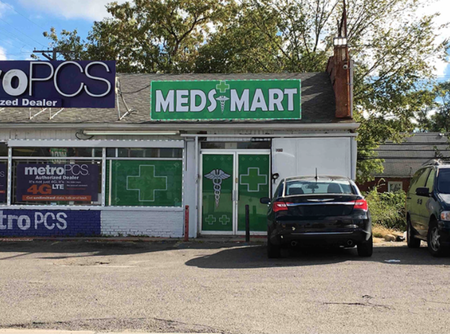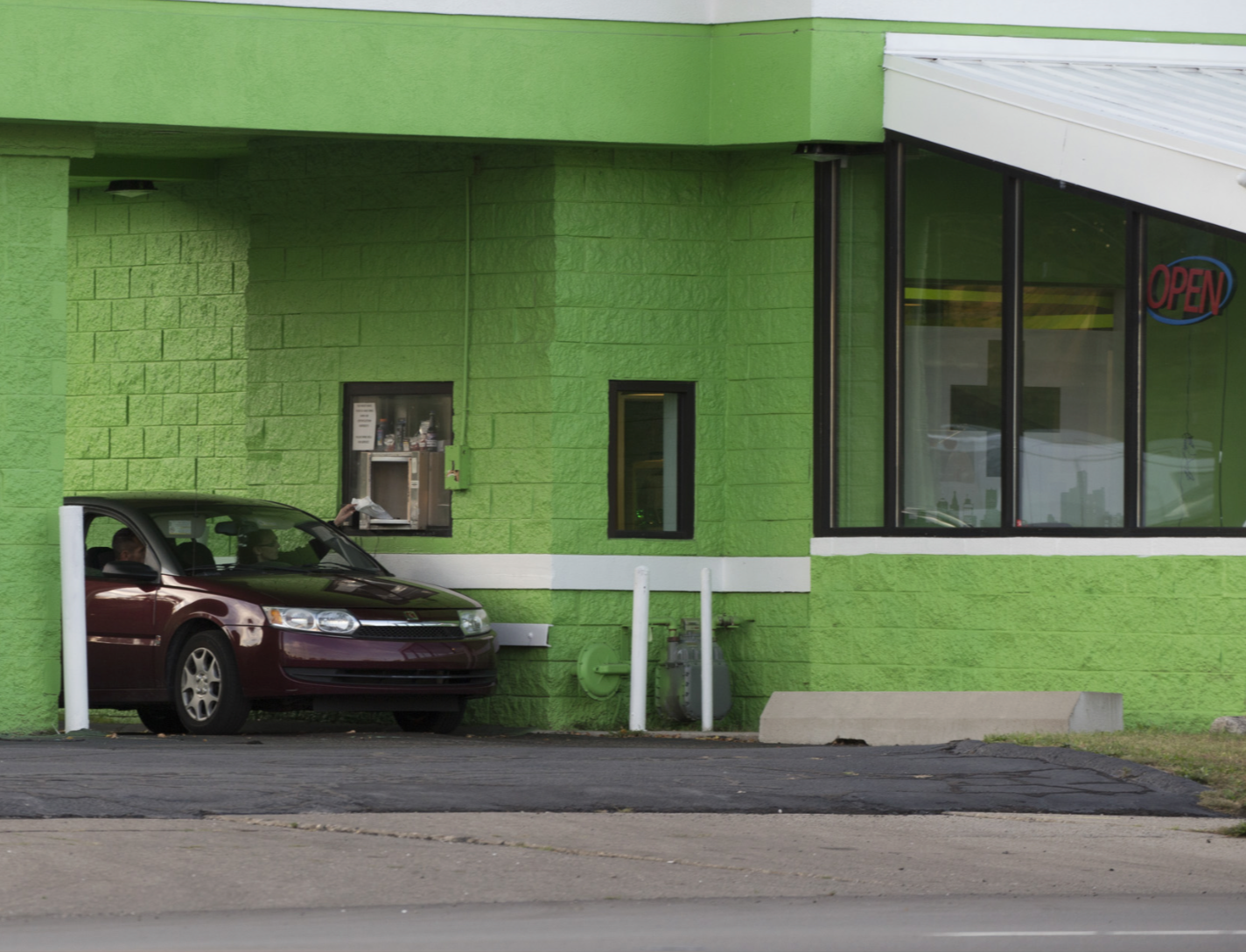Detroit to Weed Out Medical Marijuana Dispensaries
As new city ordinances come into effect, dispensaries now have the month to apply for licenses or face shutdowns.

Detroit has made significant steps to regulate medical marijuana and its business practices in recent months. Last year, City Council approved measures that will set up stricter licensing and zoning practices for dispensaries that provide the drug. The city says there may be as many as 211 marijuana dispensaries in the city. That’s more than one per square mile. But the growth of the industry has been met with mixed reactions.
The issue of medical marijuana and its place within Detroit has been on the table since the Michigan Medical Marihuana Act was signed into law in 2008. The measure legalized use of the drug for medicinal purposes statewide. It’s what allows
Michael Dobine to register as a patient after he was involved in a car accident on the Lodge Freeway.
“A guy hit us head on the freeway, killed my little brother, he passed away. I broke my leg had to learn how to walk all over again. That type of accident, it’s so tragic, it will leave you up with sleepless nights.”
Michael Dobine, Medical marijuana patient
Dobine says he suffers from insomnia, loss-of-appetite, and pain.
“Now the doctors they prescribe me Xanax and stuff like that. Xanax, Klonopin, a couple things, but they come with so many side effects and then your tolerance builds up so high off the medication that you need more and then you start seeking more but it doesn’t help the issue.”
According to the city, there are about 12,000 registered medical marijuana patients in Wayne County and nearly another 19,000 in Oakland and Macomb Counties.
Marijuana laws in Detroit have had a complicated history. In 2012, the city tried to block a decriminalization effort from appearing on a ballot, but state courts ruled against it.
That November, a referendum which sought to allow possession of one ounce of marijuana on private property passed with 65 percent of the vote. Of course, marijuana still remains illegal under federal law.

Though medical marijuana has been legal in Michigan for eight years, Detroit City Council Member James Tate says he didn’t see the proliferation of dispensaries until 2014.
“As you know we’ve had bankruptcy and a whole host of things that have been preoccupying our time.”
James Tate, Detroit City Council Member for District 1
Tate says prior to the creation of the ordinance, medical marijuana centers weren’t completely transparent when applying for building permits.
“All of them, for the most part are using the loophole. They go in and ask for a license from our building and safety division and ask for a license for a medical center.”
Tate says many dispensary owners are hoping to be grandfathered into their current locations. Otherwise the new zoning ordinances would force them to close.
“The problem with that is that we don’t have an ordinance on the books that says what they’re doing currently is legal. So what they’re doing right now is illegal.”
Eventually, Tate came to lead the charge that would create ordinances that zone and license medical marijuana caregiver centers. Under the new statute, the city says existing businesses that have been distributing medical marihuana have been doing so illegally.

The new zoning ordinance will keep dispensaries from locating within 1,000 feet of Drug Free Zones, party stores, parks, religious institutions, and other medical marijuana dispensaries.
Under the city’s plan, 651 parcels would be freed up for dispensaries. However, some of those plots are already occupied. Dispensary owner Cort Kwiecinski says of the properties available, few are desirable.
“The black zones as they call them, where they would allow dispensaries are few and far between and in some of the rougher areas of the city where there isn’t really anything, where there isn’t any infrastructure and you’d have to build from the ground up.”
Cort Kwiecinski, Co-owner of the Detroit Grass Station

Kwiecinski may be forced to close his dispensary, but he has the option of taking his case before the city’s Board of Zoning Appeals to seek an exemption. Still, many community members, like Pam Weinstein, support the new ordinance. She says the current policy needs to change.
“Essentially, it’s the Wild Wild West. So that’s why we need common sense regulation to make sure that these facilities are run in a proper way, that it’s safe, that it’s clean and that they don’t overwhelm Detroit neighborhoods.”
Pam Weinstein, Detroit resident
Now, dispensaries have until the end of the month to apply for a Medical Marijuana Caregiver Center license online. They’ll have to reapply annually and will face inspections throughout the year. If the dispensaries fail to meet the requirements, they could be shutdown.

